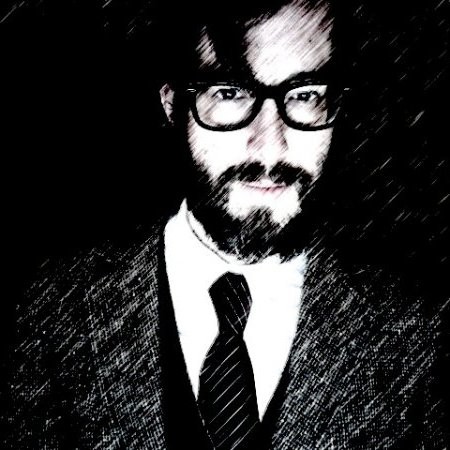Creative Instinct
Photo by Iain Marcks
Why is filmmaking so hard? In the process of curing what ails you, you put your own life on the line
Some friends of mine are prolific filmmakers. They really know how to crank ‘em out—shorts, features, web series—and a lot of the movies they make are programmed at festivals like Tribeca and Sundance.
But they’re going for volume, not perfection: throw a bunch of people into a room with a camera and a microphone and see what happens. After a couple of takes, move on. They’re not precious about the material. The process is more like riffing on an idea. You’re just going with the flow, letting instinct instead of intellect point the way. Sometimes this produces moments of honesty and truth, while others…
Let’s just say that a film dies many deaths on its journey from the page to the screen, and a filmmaker feels the pain of each one. “Making movies is hard, but it’s better than feeling fucked up inside all the time,” an actor-director friend once told me. But what do you do when the thing that’s supposed to keep you from feeling fucked up all the time is one of the things that fucks you up?
Art allows us to communicate feelings through abstraction, symbolism, and subtext, providing just enough information to the audience and in ways that trigger emotional responses. Rarely is the audience excluded from the author’s perspective, even if it’s an audience of one, of the artist alone. In some small way the things you make, you make for yourself.
On the opposite end of the productivity spectrum, another one of my friends spent almost a decade working on a single film. It remains to be seen if another will follow. I had a hand in producing this film, and worked on the set. One day, in the middle of our shoot schedule, after we’d driven hundreds of miles, lost a shipment of props, fought and made up, and risked deportation and extreme dehydration, I asked my director friend what kept him going all these years.
“I really just want to see this movie,” he replied. That nails it.
Making my last project—a short film—was one of the hardest things I’d ever done, mentally and emotionally. My films are personal tests where I push myself to the limits of my abilities, so I can see what my strengths and weaknesses are. The fear of failure, the revelation of weakness, is a major motivating force in getting through the hard times.
That personal audience of one can be your harshest critic. Validation is never guaranteed. Success is hard to hold on to, and doesn’t always come in the expected forms. I’ve watched filmmakers risk everything, succeed, seize their moment, and throttle out every last drop; I’ve seen others sacrifice their big opportunities at the altar of something better that might never happen.
For the former, success can be incredibly validating, but for the latter, validation comes through the work itself. Almost anyone can make a movie these days, and a lot of people are in fact, making films. Some people want to record a thought or a feeling to prove in some small way that something happened, others just want to see the pictures in their head up on a big screen, and still others need to unpack an idea and it doesn’t matter if no one else even cares.
Either way these people, myself included, don’t have any choice. When I make a film and the dust settles, I know where I stand. Not making anything would be much worse.
I believe that great art doesn’t come without a fight. The sardonic line about writing often attributed to Hemingway—but can actually be traced to 20th century sports writer Red Smith—comes to mind: “You simply sit down at the typewriter, open your veins, and bleed.”
Spilled blood reminds us that we’re fragile and for all our differences very much alike. The aware artist recognizes how these qualities can be nurtured or exploited. It’s what Aristotle meant by catharsis, a great release of emotion. Catharsis can be powerful, depending on the emotions the author wants to impart and how much blood they’re willing to spill.
It’s a little medieval, in that sense: in the process of curing what ails you, you put your own life on the line.
Joni Mitchell said: “The most important thing is to write in your own blood. I bare intimate feelings because people should know how other people feel.” Maybe it’s the sight of our own blood and viscera on the page or on the screen that makes the process worthwhile. This is one of the reasons why people struggling with depression—those who feel “fucked up inside all the time”—sometimes turn to drugs, alcohol, or other forms of self-harm. Or self-expression. If it hurts or zaps you in the head, then at least you’re feeling something.
The danger is in feeling too much, putting all of yourself — your dreams, fears, and desires—into your work and bleeding out. That’s the trick to bloodletting: knowing how much is too much, or too little; the way between life and death, between good and bad art. You want your audience to feel compassion—literally the Latin for “suffer with”—but how far are you willing to go to get them to empathize? If you’re serious about it, you go all the way.
Hey, while you're here ...
We wanted you to know that The End Run is published by Endcrawl.com.
Endcrawl is that thing everybody uses to make their end credits. Productions like Moonlight, Hereditary, Tiger King, Hamilton—and 1,000s of others.
If you're a filmmaker with a funded project, you can request a demo project right here.
The Hydrogen One Signals Major Changes at Red
Why is filmmaking so hard? In the process of curing what ails you, you put your own...

